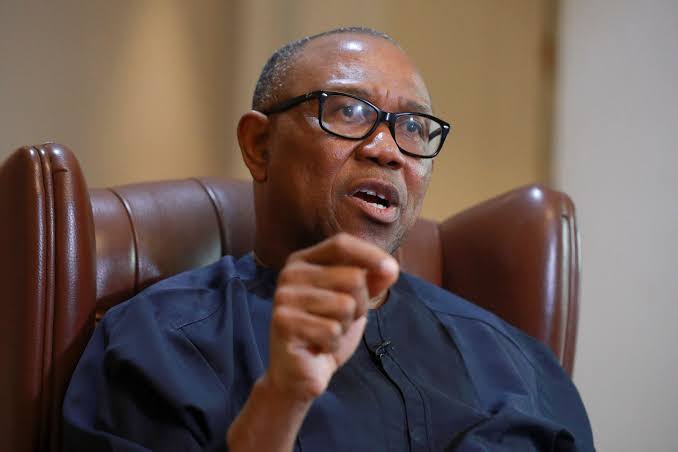
Peter Obi Laments Rising Hunger in Nigeria, Urges Shift to Production Economy Amid Severe Food Crisis

The 2023 presidential candidate of the Labour Party, Peter Obi, on Wednesday, lamented that severe hunger has now become an unfortunate member of many households in Nigeria despite the nation having the most arable land in Africa.
In a statement marking World Food Day, which raises awareness about the issues of hunger and food insecurity, Obi said the global observance is significant to Nigeria, where food prices are skyrocketing as essential food items are becoming unaffordable to most people.
He noted that food insecurity has severely impacted Nigerian households, with many unable to afford necessities.
According to Obi, food inflation in Nigeria has increased by 37.5 per cent year-on-year as of August 2024, and millions of Nigerians are facing acute food shortages due to security challenges and the removal of fuel subsidies.
He also referenced the recent World Bank report comparing Nigeria’s food crisis to that of war-torn countries like Yemen, as well as the Global Hunger Index, which ranked Nigeria among the 20 most hunger-stricken nations. He added that over 31 million Nigerians are currently short of food, and 15.6 million children are hungry.
Obi warned that if the federal government fails to address the issue, the United Nations predicts that 82 million Nigerians, or about 64 per cent of the population, could go hungry by 2030.
Obi said these reports, sad as they are, only paint a lenient picture of the severity of the food crisis and hunger.
He called for a shift from a consumption-based economy to a production-focused one, saying:
“Over the years, I have maintained that moving the country from consumption to production remains the surest way of combating food insecurity and pulling the nation out of the present food crisis. I have equally stated, unequivocally, that the greatest asset our nation has is the vast uncultivated lands in the North coupled with our huge demographics.”
“Therefore, we must be intentional with our agricultural investments,” he said, calling for increased investment in agriculture, improved security for farmers, and adopting modern farming techniques to tackle the crisis and ensure food security.
Read More:
- Road to Extortion: How Security Forces Prey on Travellers on Lagos-Cotonou-Lome-Accra Route – Part I
- Just In: Nigeria’s Food Inflation Increases by 12% in One Year, Headline Inflation Drops by 0.8% in July – NBS
About The Author
Related Articles
Tinubu Government Delays Release of Signed Tax Acts to the Public
Four days after President Bola Tinubu announced the signing of four tax...
ByMayowa DurosinmiJune 30, 2025As Tinubu Urges Africa-Caribbean Unity in Saint Lucia, Over 272 Nigerians Killed in June Alone
While Nigerians deal with deadly violence, worsening hunger, and mass flooding, President...
ByWest Africa WeeklyJune 30, 2025You Can’t Tax a Dead Economy: Nigeria Is Suffocating Under Its Own Policies
As Nigeria’s Central Bank clings to its benchmark interest rate of 27.5...
ByWest Africa WeeklyJune 30, 2025“Wike is Not a Blessing to Us, He’s a Disaster” — Workers Protest in Nigeria’s Capital Over Unpaid Wages, Poor Working Conditions
Staff members of the Federal Capital Territory Administration (FCTA) in Abuja barricaded...
ByOluwasegun SanusiJune 30, 2025












Leave a comment